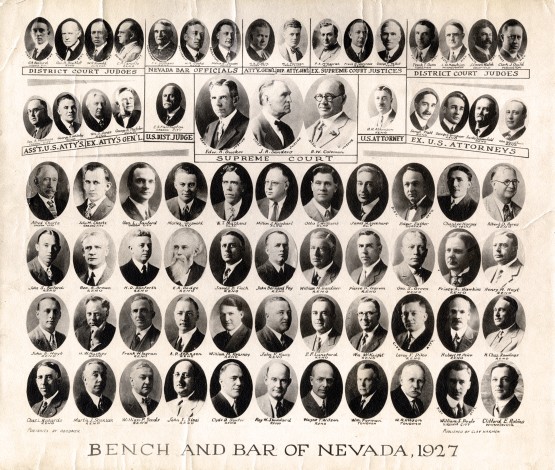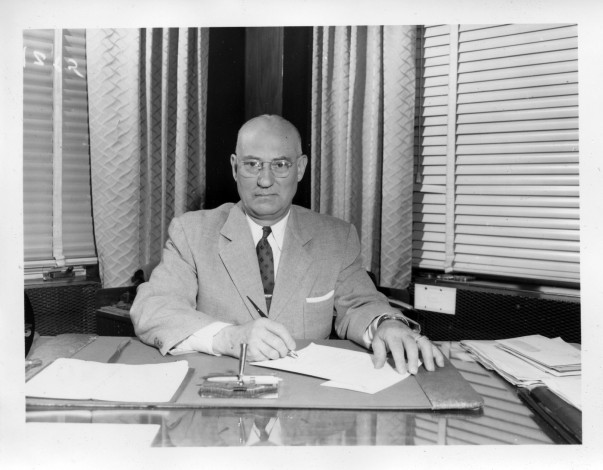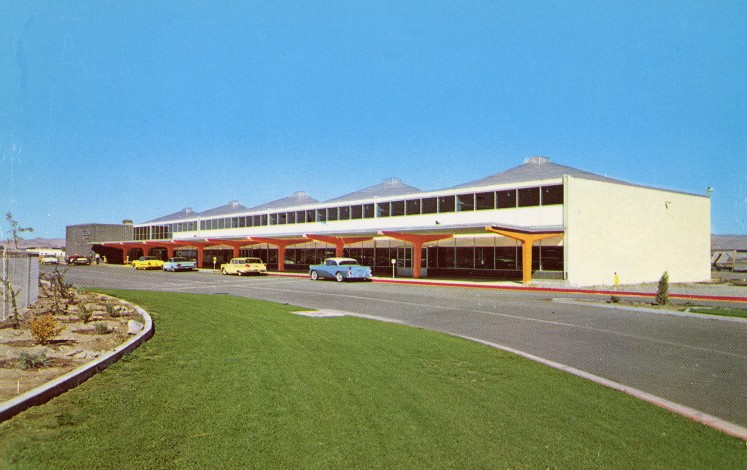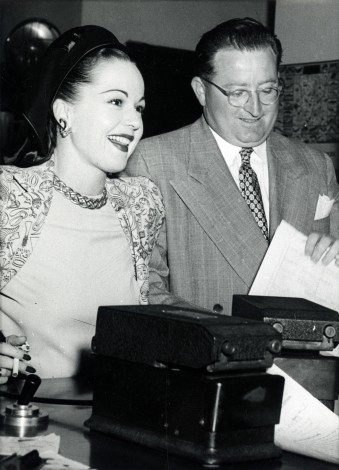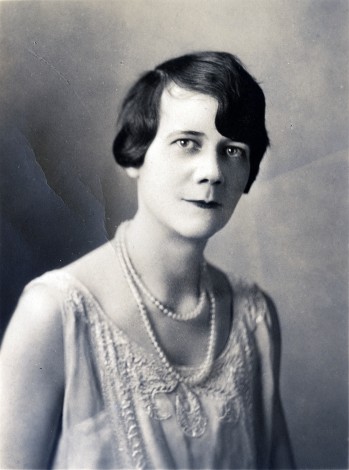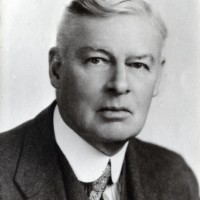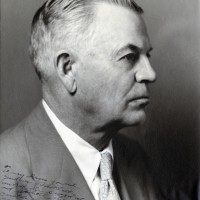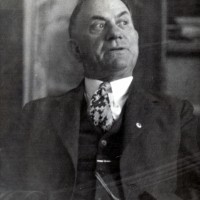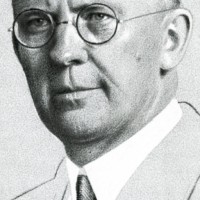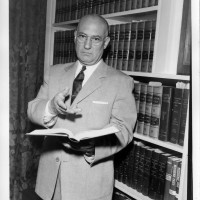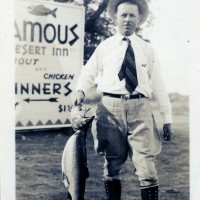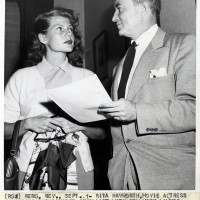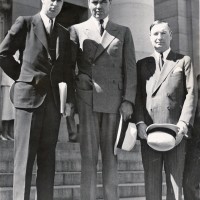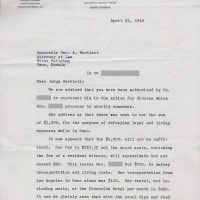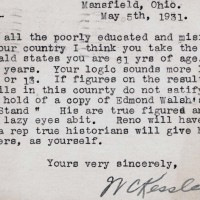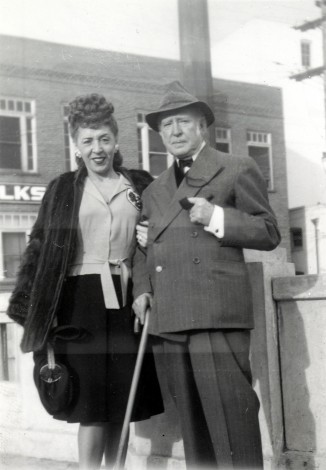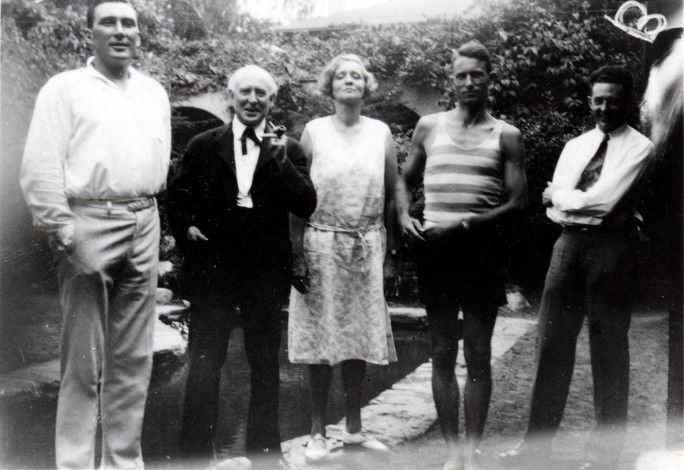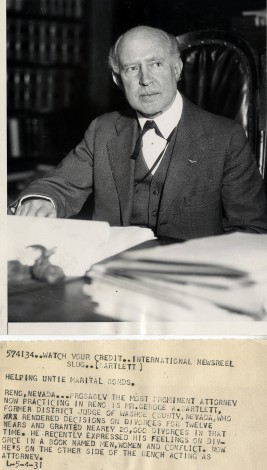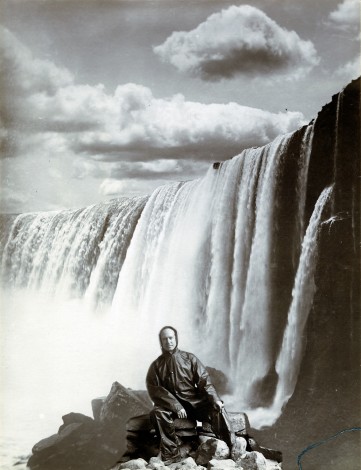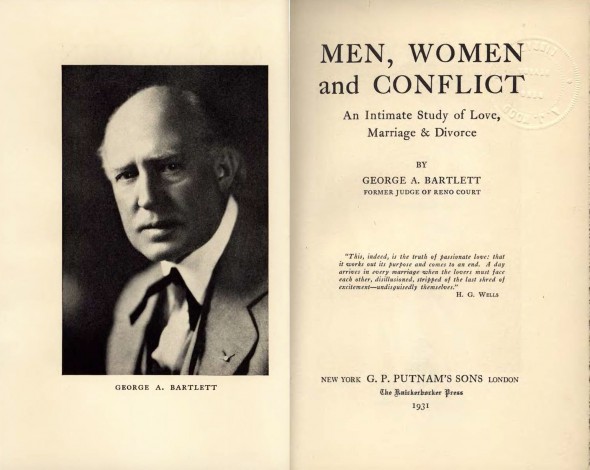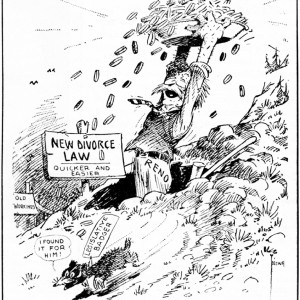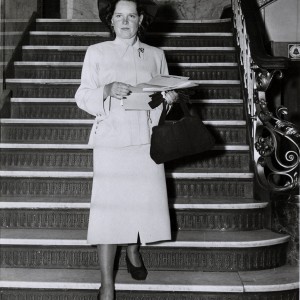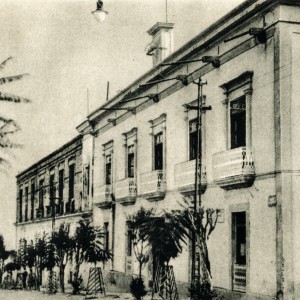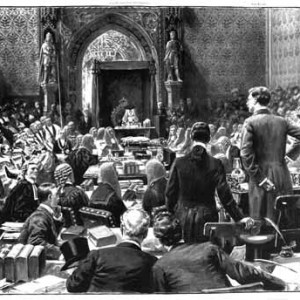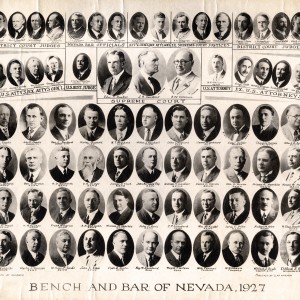An attorney was often the first person a divorce-seeker met upon arriving in Reno, and the presiding judge was one of the last. The ranks of both professions were full of memorable characters.
Lawyers and judges were key players in the divorce trade. In addition to providing legal services to their divorce clients, Reno lawyers served as housing and employment consultants, publicists, and even escorts. In its divorce heyday, Reno boasted as many as 120 lawyers, ensuring a steady flow of divorce cases through the Washoe District Court.
While not every Reno lawyer favored the divorce business, many were outspoken in their defense of the state’s liberal laws. Edwin Ewing (E.E.) Roberts, Reno’s colorful mayor from 1923 until 1933, was a former divorce lawyer known for his blunt aphorisms about human nature. “When a person wants a divorce,” he once stated, “you may be sure that he or she is going to get it, somewhere, somehow. Therefore, I don’t see why Nevada shouldn’t give it to them and make it easy for them to get it. It benefits us all.”
New York lawyer William Schnitzer was one of the first attorneys to recognize Reno’s advantages as a divorce haven. In 1907, Schnitzer moved to Reno, where he published a pamphlet outlining Nevada’s divorce procedure—highlighting his own expertise on the subject, of course. Schnitzer placed advertisements for his pamphlet in Eastern newspapers and even on theater curtains. Because advertising the divorce trade was strictly forbidden at the time, Schnitzer was disbarred by the Washoe County Bar Association for his entrepreneurial efforts, although he was later reinstated.
Clel Georgetta, a Reno lawyer, author, sheep rancher, and district court judge, also landed in hot water for purportedly illegally advertising his services as a divorce attorney. In 1935, he was threatened with disbarment over an article he wrote and for which he claimed he had approval to publish. It seems one of his competitors (described by Georgetta as “some small, cheap jealous rat”) had blown the whistle on him. Georgetta was ultimately exonerated by the American Bar Association and granted a formal apology.
Other judges and lawyers developed less controversial reputations as authorities on the divorce trade and its social implications. Reno divorce attorneys Frank W. Ingram and G. A. Ballard contributed a scholarly article on Reno’s divorce business to the Journal of Law and Contemporary Problems in 1935.
In 1931, G. P. Putnam & Sons published Men, Women and Conflict: An Intimate Study of Love, Marriage & Divorce by Reno’s beloved Judge George Bartlett. In it, Bartlett argued that the institution of marriage was changing, increasingly failing to fulfill its purpose, and should, as a man-made institution, perhaps be reevaluated. The book was re-issued in 1947 by Penguin Books under the title Is Marriage Necessary?
We have been told that in this ‘Ark of the Lord’ the Reno lawyers meet each train like redcaps and that they virtually say to each woman passenger alighting: ‘Looking for a divorce, lady?” – Max Miller, Reno (1941)
Featured Resources
Judge George A. Bartlett
Short in stature but big in personality, Judge George A. Bartlett (1869-1951) was a longstanding force in Nevada politics and law. He granted more than 20,000 divorces during his esteemed career, earning him a national reputation and the love and respect of many of his clients, who called him “Judgie.”
Bartlett believed in the necessity of divorce and defended Nevada’s divorce law and its important role in the nation’s social and legal systems. At his core, Judge Bartlett was a warm, kind, and humane man. These characteristics come through in his correspondence and the lengths to which he fought for clients who needed someone in their corner.
“Judgie” did everything in his power to ensure that the children of divorce were cared for both materially and emotionally. He safeguarded his clients’ privacy by instituting a policy of sealing divorce records upon request. Despite a fee schedule set by the Washoe Bar Association, Judge Bartlett would often provide his services for free or at a reduced fee. “And I never send bills,” he would say. It is no wonder he inspired such deep affection among his many clients.
